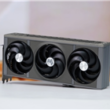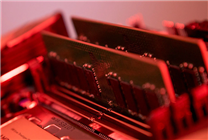As reported by IT Home on August 29, Nokia has released its latest financial report amidst a challenging period under its new CEO, Justin Hotard, who has been in charge for only four months. The company is currently facing a lukewarm response from the capital market.
In the second quarter, Nokia’s net profit fell by 28% year-on-year, reaching 236 million euros, despite a revenue increase of 2% to 4.47 billion euros. However, when evaluated at a fixed exchange rate, revenue actually declined by 1%. The company’s operating margin dropped to 6.6%, marking a 2.9 percentage point decrease compared to the previous year. Without a significant contribution of 255 million euros from its patent licensing business, Nokia would have seen minimal profitability.
The current challenges are particularly noticeable in Nokia’s mobile network division. U.S. carriers like Verizon and AT&T are moving away from Nokia, favoring competitors like Samsung and Ericsson. T-Mobile remains its primary customer in this sector, which once was Nokia’s biggest revenue generator.
For context, in 2020, Nokia’s mobile network division generated 10.4 billion euros, nearly half of the company’s total revenue. However, by 2024, this figure declined to 7.7 billion euros, representing a 40% contribution to overall revenue. The profit margins have also deteriorated: from 9.5% in the first half of 2022 to a loss of 75 million euros in the current period, with a negative profit margin of -2.2%.
Justin Hotard, emphasizing a strategic pivot, highlighted the potential of artificial intelligence, forecasting an “AI super cycle” that could boost demand for network technologies. Despite investing heavily in research and development to support future growth, these efforts have pressured short-term profits.
Nokia’s shareholders are growing impatient. Some investors have criticized the company for focusing on “comparable profits” to obscure weaknesses in official figures. Others suggest radical restructuring, including divesting profitable segments and relocating the headquarters to the U.S. to attract more institutional investors.
Source link







